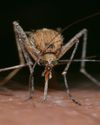
It possesses a rich history of traditional healing system and is known for its biodiversity and enormous varieties of plants.
Ayurveda means 'Science of Life'. Since ancient times, Ayurveda has maintained its importance in the field of medical sciences. Recently, its importance has been increased abundantly in our daily life, claiming that it can be effective against COVID-19. There has been a rapid increase in the production of medicinally important plants after coronavirus outbreak. This pandemic has renewed public interest in complementary and alternative medicine. Ever since we are dealing with the deadly coronavirus disease, Health has become our top priority and many of us trying to find 'home remedies' to fight the deadly virus. From turmeric milk to herbal kadha, we have been trying every possible way to boost immunity. The COVID-19 pandemic has brought increased attention to the importance of medicinal plants and natural remedies. Post-COVID-19 there's a growing focus on the value addition of medicinally important plant through research, sustainable cultivation, traditional method integration, herbal products, biotechnology, awareness, regulation, conservation and global collaboration. This emphasis arises from the pandemic's spotlight on natural remedies.
Advantages of Medicinally Important Plants:
➤ They are easy to grow, even in a small home garden.
➤ They are pharmacologically important.
➤ As far as their economic value is considered, their plantation has been increased significantly after Coronavirus outbreak.
➤ They require less monitoring.
➤ They are cost-effective.
➤ Herbal drugs are safe without any side-effects.
➤ They are not specific for a particular disease but help in improving and developing a strong immune system, thereby act as a preventive medicine that positively regulate the overall health.
This story is from the November - December 2023 edition of Scientific India.
Start your 7-day Magzter GOLD free trial to access thousands of curated premium stories, and 9,000+ magazines and newspapers.
Already a subscriber ? Sign In
This story is from the November - December 2023 edition of Scientific India.
Start your 7-day Magzter GOLD free trial to access thousands of curated premium stories, and 9,000+ magazines and newspapers.
Already a subscriber? Sign In

Building world's 1st pyramid
In a preprint study published this summer, researchers proposed that ancient Egyptians built the world's first pyramid the 4,700-year-old Step Pyramid of Djoser, which sits on Egypt's Saqqara plateau using a \"modern hydraulic system\" powered by a long-gone branch of the Nile River.

Climate change arms the world, ovarian cancer pulls the trigger.It's time we disarm them both
Climate change, driven by human activities, leads to environmental changes such as rising temperatures, altered weather patterns, and increased pollution.

Climate Change Added 18 mph to Hurricane Wind Speeds over Past 5 Years
High ocean temperatures caused by global warming boosted maximum intensities for most storms between 2019 and 2023, as well as for every 2024 hurricane.

How Indian Vulture Decline Led to 500,000 Deaths in 5 Years
Once a common sight across India, vultures were abundant scavengers, often seen circling landfills in search of carcasses.

Understanding Monkeypox: Insights and Implications
Monkeypox, a viral zoonotic disease, has gained significant attention in recent years due to its re-emergence and sporadic outbreaks globally.

AI predicts that most of the world will see temperatures rise to 3°C much faster than previously expected
Three leading climate scientists have combined insights from 10 global climate models and, with the help of artificial intelligence (AI), conclude that regional warming thresholds are likely to be reached faster than previously estimated.

Infrared Radiation: A New Player In Mosquito Host-Seeking
The sound of mosquitoes is all around us when the sun sets and the air gets warm and sweltering.

Fish Oil May Benefit to Cure Alzheimer's, disorder: new findings
The benefits of fish and fish oil consumption are well-known in medical science as fish is considered a precious food resource that provides sufficient nutrition to humans.

A new class of antivirals could help prevent future pandemics
The arrival of Paxlovid in December 2021 marked another turning point in the COVID-19 pandemic an effective antiviral that has since successfully treated millions.

Turning carbon emissions into methane fuel
Chemists have developed a novel way to capture and convert carbon dioxide into methane, suggesting that future gas emissions could be converted into an alternative fuel using electricity from renewable sources. Carbon dioxide (CO2) is a greenhouse gas that accounts for a large part of Earth's warming climate, and is produced by power plants, factories and various forms of transportation.